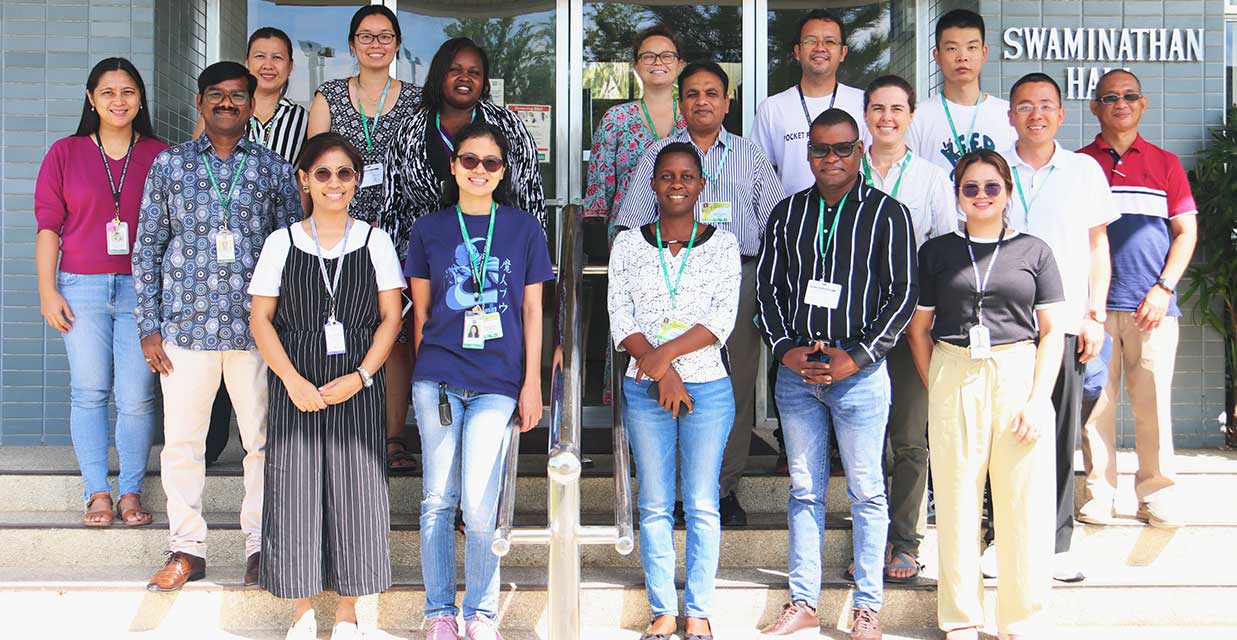Nine graduate students and rice researchers from Pakistan, China, Philippines, South Korea, Kenya, South Africa, Mozambique,and Tanzania were trained on phenotyping for abiotic stresses in rice during the comprehensive training program offered by the International Rice Research Institute (IRRI).
The training, held on 18-22 September 2023, offered lectures and hands-on demonstrations of protocols for environmental monitoring, screening, and physiological measurements related to seedling stage, vegetative stage, and reproductive stage drought, seedling and reproductive stage salinity, heat, submergence, and stagnant flooding in rice. Field trips to stress-affected farmers’ fields in the Philippines were also organized where participants were able to interact and engage with local rice farmers and observe the real-life implications of abiotic stresses in rice.
Dr. Amelia Henry, Senior Scientist II – Stress Physiology and Research Unit Leader – Traits for Challenged Environments, Rice Breeding Innovations, served as the main resource person for the training. She was joined by Dr. Waseem Hussain, Scientist I – Rice Breeding Innovations; Dr. Mahender Anumalla, Postdoctoral Fellow – Trait Development; Ms. Joie Ramos, Senior Associate Scientist I – Plant Breeding; Mr. James Egdane, Researcher – Plant Physiology; Mr. Mignon Natividad, Assistant Scientist – Drought Physiology; and Ms. Marjorie de Ocampo, Associate Scientist – Molecular Breeding.
“The course was delivered in a very interactive manner – full of practicals and hands-on activities, which made it very easy to understand and hard to forget. I highly recommend this to anyone who is dealing with abiotic stress experiments even on crops other than rice,” said Ms. Margareth Makauki, a researcher based in IRRI Regional Office – Africa.
Another participant, Mr. Joaquim Maquival, Assistant Scientist at IRRI Mozambique echoed the sentiment, saying “The training course for Phenotyping for Abiotic Stress was very useful as these are the main problems that affect the farmers’ fields all over the world. The combination of theoretical and practical sessions made the understanding of the topics for the course very effective.”
In her concluding remarks, Dr. Henry encouraged the participants to keep the network with IRRI and each other intact. “Please feel free to contact us after this course, if you have any questions or ideas for collaborations because the only way that we will have impact for the farmers is by working through collaborations.”
The training is one of the courses offered by IRRI Education customized for scientists and researchers, farmers and extension, and leaders in the rice-based agri-food sector. To see the full suite of learning programs around Science, Technology Transfer, and Policy Leadership, visit https://education.irri.org/short-long-courses/


